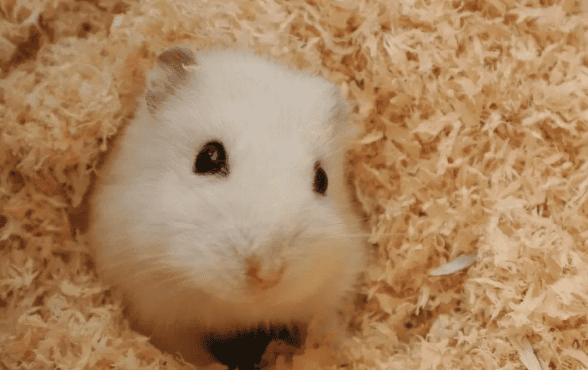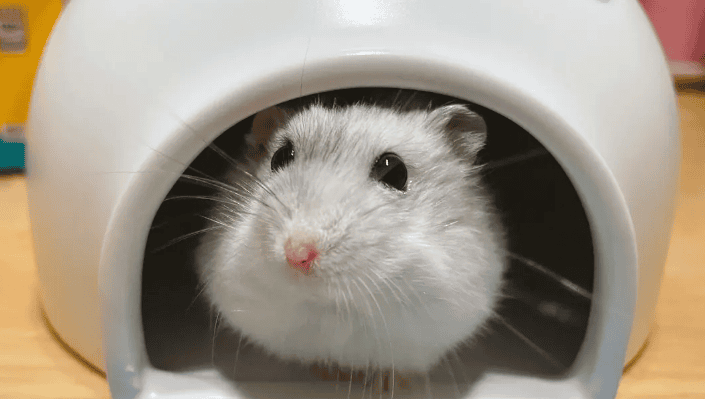Hamsters, such lively and cute little animals, have become the pet of choice for more and more people. Their furry bodies, sparkling eyes and unique charm are all irresistible. But you know what? These little guys also hide many interesting secrets. This article will reveal the mystery of hamsters to you and let you know more about all aspects of these little cuties.

1. The unique habits of hamsters
Diurnal and nocturnal: Hamsters are typically nocturnal animals. They hide in their nests to rest during the day, and become extremely active at night, starting to forage and play around.
Territorial awareness: Hamsters have a very strong sense of territory. They will mark their territory with scent and attack intruders.
Solitary animals: Hamsters are solitary animals and they do not like to live with other hamsters. Only during the breeding season do male hamsters spend brief periods of time with female hamsters.
2. The eating habits of hamsters
Omnivore: Hamsters have a very wide diet, and they eat both plant and animal foods. Common hamster foods include grains, vegetables, fruits, and insects.
Self-cleaning habits: Hamsters love to be clean and spend a lot of time cleaning their hair to keep it tidy. At the same time, they also bury food to prevent food residues from attracting predators.
3. Reproduction and growth of hamsters
Reproduction characteristics: Hamsters generally start to breed in spring, and female hamsters can give birth to up to 20 baby hamsters. Baby hamsters can live independently soon after birth.
Growth process: Newly born baby hamsters are very small, weighing only a few grams. They nurse for about three weeks before starting to forage independently.
Sexual maturity: Generally speaking, hamsters reach sexual maturity when they are 3 to 4 months old. But in order to ensure their health, it is recommended to breed them when they are 6 to 8 months old.

4. How to take good care of your hamsters?
Provide a spacious living space: Provide a spacious and comfortable living space for the hamster, which should include a spacious cage, suitable toys and sufficient food and water sources.
Maintain a suitable temperature: Hamsters are very sensitive to temperature, and the suitable temperature range is 20 to 30 degrees Celsius. During winter and summer, special attention needs to be paid to providing a stable temperature environment for hamsters.
Clean the cage regularly: In order to keep the cage clean and hygienic, you need to clean and disinfect the cage regularly. At the same time, pay attention to changing the hamster's drinking water and food to keep them fresh and clean.
Observe health status: Check the health status of your hamsters regularly and pay attention to their diet, weight and behavioral changes. Once abnormalities are discovered, seek veterinary help promptly.
Provide appropriate toys and entertainment: To keep your hamster active and happy, you can provide them with appropriate toys and entertainment. For example, swings, running wheels, tunnels, etc. can all allow hamsters to enjoy themselves.
Avoid excessive contact with humans: Although hamsters are very cute, for their health and happiness, they should avoid excessive contact with humans. Basic hygiene and safety guidelines should be followed when raising or handling a hamster.
Respect the habits of hamsters: It is very important to understand and respect the habits of hamsters. For example, avoid frequently disturbing the hamster's resting and feeding time, and provide appropriate food and water. This allows your pet to live a happy and healthy life.
Seek professional help: If you encounter any problems or difficulties caring for your hamster, don’t hesitate to seek professional help. You can seek guidance and advice from your local pet store, veterinarian, or someone experienced with hamsters.
Know and abide by local laws and regulations: Before you decide to keep a hamster, it is very important to understand and abide by the laws and regulations regarding pet ownership in your area. For example, some areas may stipulate that you must apply for relevant documents or receive vaccinations for your pet. Complying with these regulations ensures that both you and your pet are legally protected.
Be prepared for a long-term commitment: Owning a pet is a long-term commitment. You need to consider all possible situations and issues, such as whether pets are allowed where you live, whether you can provide adequate care and attention, whether you can afford the cost of keeping a pet, etc. It is very important to think carefully about these issues before deciding to get a pet.
Choose the right breed for your pet: Different breeds of hamsters have different personalities and needs. When choosing the right breed for your pet, you need to consider factors such as your lifestyle, living environment, and what you want from your pet. For example, some breeds of hamsters prefer to be left alone, while others require more attention and interaction. Understanding these differences can help you choose the best pet for you.

 扫一扫微信交流
扫一扫微信交流
发布评论